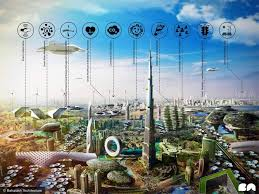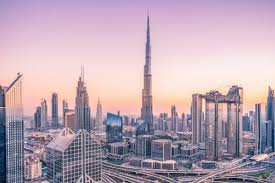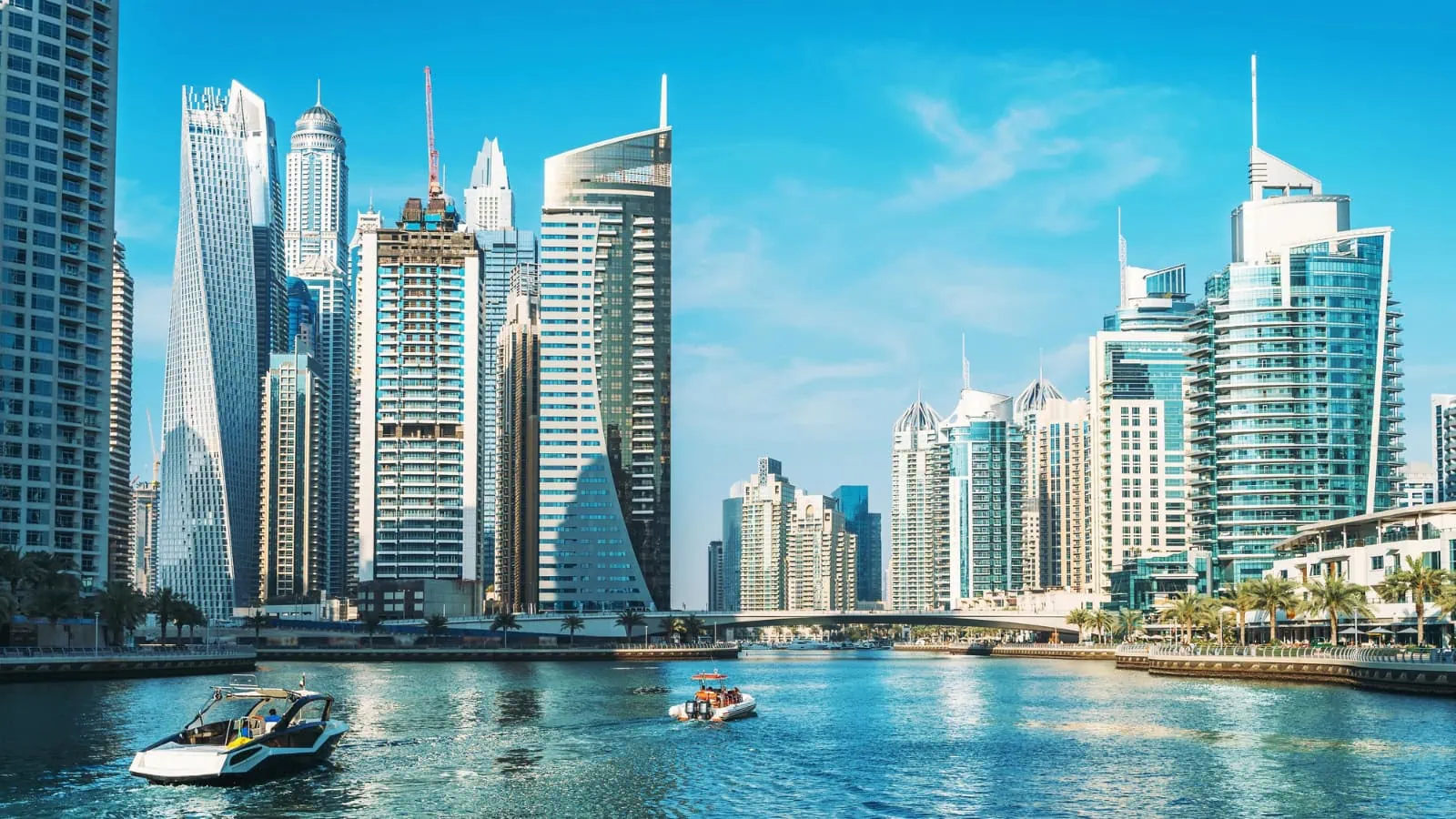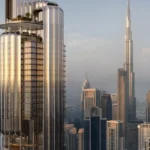Now Reading: “How Dubai’s Smart City Projects Are Driving UAE’s Economic Boom 2025!”
-
01
“How Dubai’s Smart City Projects Are Driving UAE’s Economic Boom 2025!”
“How Dubai’s Smart City Projects Are Driving UAE’s Economic Boom 2025!”

Table of Contents
In recent years, Dubai has transformed itself into a leading global hub for technology and innovation. At the heart of this transformation are its ambitious smart city projects that are reshaping not only the city’s landscape but also the economy of the entire United Arab Emirates (UAE). These projects are expected to have a lasting economic impact, contributing to GDP growth, attracting foreign investments, creating new job opportunities, and enhancing the quality of life for residents and visitors alike.
What is a Smart City?

A “smart city” uses digital technology to improve the quality of urban services such as energy, transportation, healthcare, and security. The goal is to create cities that are efficient, sustainable, and convenient. Technologies like the Internet of Things (IoT), artificial intelligence (AI), data analytics, and 5G connectivity make these improvements possible.
Dubai is leading the way in the Middle East with its “Smart Dubai” initiative, which aims to make Dubai the happiest and smartest city in the world. The program covers more than 100 projects in six key sectors: smart living, smart transportation, smart environment, smart governance, smart economy, and smart people.
Economic Growth Driven by Smart City Projects
1. Boost in GDP Contribution
Dubai’s smart city projects are playing a significant role in the overall economic growth of the UAE. According to experts, digital transformation can add billions of dirhams to the national GDP over the coming years. These projects create new business opportunities for technology companies, startups, and service providers.
For example, the Dubai Data Strategy and the Dubai Blockchain Strategy are expected to save the government billions in document processing and other administrative costs. These savings can be redirected to other development projects, thus improving economic output.
2. Attracting Foreign Investment
One of the biggest economic advantages of smart city projects is the attraction of foreign direct investment (FDI). International tech giants such as IBM, Microsoft, and Huawei have shown interest in setting up operations in Dubai, thanks to its advanced digital infrastructure.
In 2023 alone, Dubai recorded more than AED 12 billion in tech-related FDI, a number that is expected to grow as more companies look to expand into the Middle East. This inflow of capital boosts the local economy, supports small and medium enterprises (SMEs), and creates high-value jobs for the skilled workforce.
3. Job Creation Across Sectors
Smart city developments are opening up new employment opportunities in sectors like IT, construction, engineering, and project management. According to a report by the Dubai Chamber of Digital Economy, the smart city sector could generate more than 50,000 new jobs by 2030.
Furthermore, training and education programs are being introduced to prepare young Emiratis for future jobs in fields such as AI, cybersecurity, and digital services. This not only reduces unemployment rates but also promotes sustainable economic development.
4. Innovation and Startup Ecosystem
Dubai’s smart city push has fueled the growth of an innovation-driven ecosystem. The government has set up special zones such as Dubai Internet City and Dubai Silicon Oasis to support tech startups. These areas offer incentives like tax breaks, funding support, and easy licensing procedures.
As a result, Dubai is now ranked among the top cities globally for tech startups. This fosters entrepreneurship, encourages creativity, and introduces new products and services that boost economic activity.
Transforming Infrastructure and Transportation

Smart city projects are also making transportation and infrastructure more efficient. The Roads and Transport Authority (RTA) has launched several AI-powered traffic management systems to reduce congestion and improve road safety. Plans are underway to introduce autonomous vehicles and smart parking solutions.
The construction of the Hyperloop, a futuristic high-speed transport system, could revolutionize travel between Dubai and Abu Dhabi, further improving regional economic connectivity. Improved transportation infrastructure reduces costs for businesses and enhances the ease of doing business in the UAE.
Environmental and Energy Benefits
Smart cities promote the use of clean energy and efficient resource management. Dubai’s solar park projects and green building codes reduce electricity consumption and lower carbon emissions. These sustainable practices not only protect the environment but also reduce operational costs for companies and households.
By positioning itself as an eco-friendly city, Dubai attracts investors and companies that prioritize sustainability, opening new avenues for “green” investments and technology development.
Challenges and Future Outlook
While the economic benefits are clear, Dubai’s smart city journey is not without challenges. High costs of technology adoption, cybersecurity risks, and the need for continuous skill development are some hurdles that need to be addressed. However, government support, strategic partnerships with global firms, and a forward-looking vision promise to overcome these obstacles.
Looking ahead, Dubai aims to complete most of its smart city projects by 2030. By then, experts predict that these developments will have contributed significantly to making the UAE one of the world’s top 10 digital economies.
Conclusion
Dubai’s smart city projects are more than just technological experiments—they are powerful engines of economic growth for the UAE. These initiatives are transforming Dubai into a global innovation center, creating jobs, attracting investments, and improving the overall quality of life. As Dubai continues on this path, the UAE stands to benefit immensely, becoming a regional leader in the digital economy and setting a model for other countries to follow.
Read More:- Deyaar’s Latest Announcement Shakes Up the UAE Property Market


















